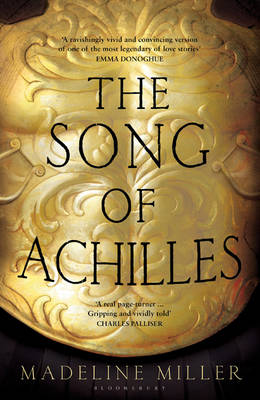Reviewed by gmcgregor on
As most of us know, it was not uncommon in Ancient Greek life for older men to have sexual relationships with younger men. Homosexual relationships between men of the same age, however, were rarer. When I was taught The Iliad, even in college, the bond between Patroclus and Achilles was usually described as just a deep friendship (lip service was paid to the idea they could have been lovers but it was never taught as being the more persuasive interpretation). Miller's novel, however, roots itself in the alternate interpretation: she presents us with Achilles, the most gifted warrior in Greece, as a man in a loving and stable lifelong relationship with Patroclus.
It would actually be more accurate to say she presents us with Patroclus as the romantic partner of Achilles: the story belongs to Patroclus, it is told through his eyes. Patroclus as created by Miller is a gentle soul, a disappointment to his aggressive father, who is banished when he kills another child purely by accident. He is sent to Peleus, father of Achilles, to be fostered, and is chosen by Achilles of all the young men at court to be his companion. Their relationship only gradually becomes romantic, much to the disgust of Achilles' river goddess mother, Thetis. She conspires more than once to break the couple apart, but their love is too strong and they remain together until the end. Miller explains Achilles' rage over the theft of his slave girl as being not about being deprived of a lover, but as being disrespected as the greatest soldier in the army by having his rightfully-claimed prize taken away.
I found it a much more enjoyable take on the story than the original. Miller really gets the time to develop Patroclus and Achilles as characters in depicting them from boyhood all the way through adulthood. She paints a very devoted relationship between them: though both briefly experiment with sex with women, they never stray from each other and Achilles refuses to leave Patroclus despite strong maternal pressure to do so. Since Miller's Patroclus isn't a skilled or enthusiastic warrior and instead serves the Greek contingent at Troy as a healer, most of the battlefield scenes that I find so boring to read are left out entirely. This is a solid read for fans of historical fiction and/or classical retellings.
Reading updates
- Started reading
- 23 June, 2016: Finished reading
- 23 June, 2016: Reviewed
